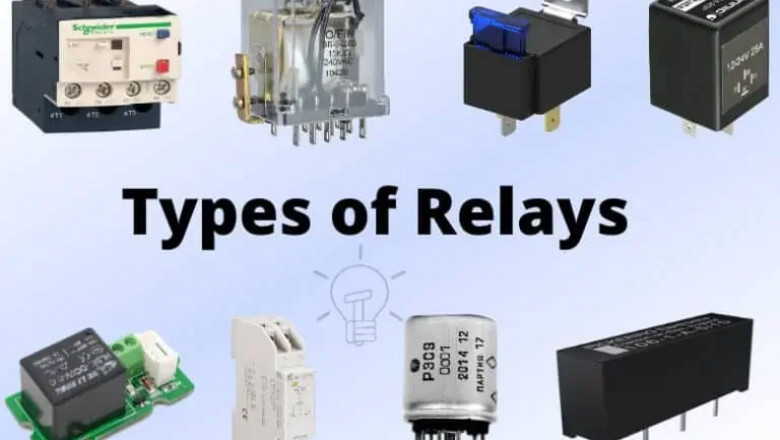views
Top 5 Applications of Electrical Relays You Should Know About
Electrical relays play a crucial role in modern electrical and electronic systems. These devices act as switches that control circuits using low-power signals, making them essential in various industries. From automotive applications to industrial automation, electrical relay technology is indispensable. In this article, we will explore the top five applications of electrical relays that you should know about.
1. Automotive Industry
The automotive industry extensively utilizes electrical relays for various applications. Relays help in controlling high-power components with low-power signals, making them vital for vehicle safety and performance. Some common uses include:
-
Starter Relay: Ensures the car's starter motor receives adequate power.
-
Fuel Pump Relay: Regulates the fuel supply to the engine.
-
Lighting Relay: Controls headlights, fog lights, and indicator signals.
-
Horn Relay: Allows the horn to function effectively without direct power from the switch.
Relays ensure efficient power management and safety, improving vehicle longevity and functionality.
2. Industrial Automation
Industries rely on relays to manage and automate various processes. In industrial control panels, relays help in switching heavy loads, protecting circuits, and ensuring smooth operations. Key applications include:
-
Motor Control: Relays switch on/off electric motors in conveyor belts, pumps, and compressors.
-
Safety Circuits: Emergency shutdown systems use relays to cut power during faults.
-
PLC Systems: Programmable Logic Controllers (PLCs) integrate relays to automate tasks like sorting, packing, and assembling.
By integrating relays, industries improve efficiency, safety, and reliability in automated systems.
3. Power Distribution Systems
In power grids and substations, electrical relays play a crucial role in fault detection and protection. Some significant applications include:
-
Overcurrent Protection: Relays detect excessive current and disconnect faulty lines.
-
Voltage Regulation: Relays maintain stable voltage levels, preventing fluctuations.
-
Transformer Protection: Relays safeguard transformers from overloads and short circuits.
These applications help prevent power failures, minimize damage, and ensure a stable electricity supply.
4. Home Automation
Modern homes are becoming smarter, and relays are a key component of this transformation. Home automation systems use relays to control various devices, such as:
-
Lighting Control: Smart switches use relays to turn lights on/off remotely.
-
HVAC Systems: Relays regulate heating, ventilation, and air conditioning.
-
Security Systems: Door locks, alarms, and surveillance systems operate with relay-based mechanisms.
-
Appliance Automation: Washing machines, refrigerators, and ovens integrate relays for efficient performance.
With relays, homeowners experience greater convenience, energy efficiency, and security.
5. Telecommunications Equipment
The telecom sector relies heavily on relays for signal transmission and switching functions. Their applications include:
-
Signal Switching: Relays direct telephone signals for efficient communication.
-
Battery Backup Systems: They manage power supply shifts during outages.
-
Networking Equipment: Relays assist in data transmission and router control.
Relays ensure uninterrupted communication and reliable network performance in telecommunications infrastructure.
Conclusion
Electrical relays are an integral part of various industries, ensuring efficiency, safety, and automation. From automobiles to power grids, home automation, and telecom networks, these devices enhance performance and reliability. If you're looking for quality electrical components, consider Tejara Direct for your electrical relay needs.














Comments
0 comment